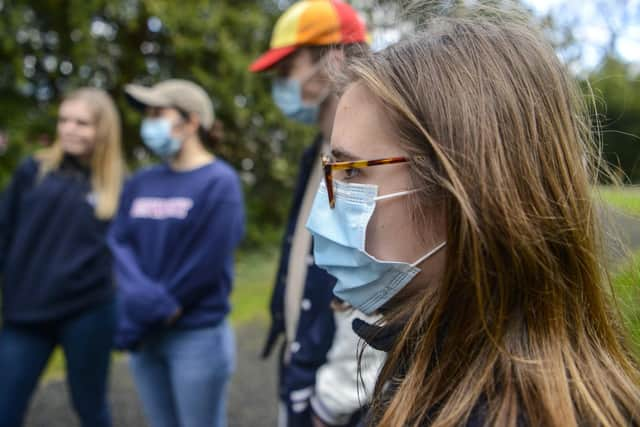Coronavirus: Sheffield Council urges staff to follow national advice
and live on Freeview channel 276
A spokesperson said that while the authority didn’t have any specific advice tailored to Sheffield, they were advising workers to be aware of national guidelines.
The latest advice from the NHS and PHE is that the UK Chief Medical Officers have raised the risk to the public from coronavirus from low to moderate.
Advertisement
Hide AdAdvertisement
Hide AdHealth professionals are working to contact anyone who has been in close contact with people who have the illness.


There are some countries and areas where there's a higher chance of coming into contact with someone with coronavirus.
These include Cambodia, China, Hong Kong, Iran, northern Italy, Japan, Laos, Macau, Malaysia, Myanmar (Burma), Singapore, South Korea, Taiwan, Tenerife (only the H10 Costa Adeje Palace Hotel), Thailand and Vietnam.
The symptoms of coronavirus are a cough, a high temperature and shortness of breath.
Advertisement
Hide AdAdvertisement
Hide AdHowever, these symptoms do not necessarily mean you have the illness as they are similar to other illnesses that are much more common, such as cold and flu.
Because it's a new illness, we do not know exactly how coronavirus spreads from person to person but similar viruses are spread in cough droplets.
It's very unlikely it can be spread through things like packages or food and viruses like coronavirus cannot live outside the body for very long.
Most people can continue to go to work, school and other public places. You only need to stay away from public places (self-isolate) if advised to by the 111 online coronavirus service or a medical professional.
Advertisement
Hide AdAdvertisement
Hide AdThere are things you can do to help stop viruses like coronavirus spreading like covering your mouth and nose with a tissue or your sleeve (not your hands) when you cough or sneeze.
You should also put used tissues in the bin immediately and wash your hands with soap and water often – use hand sanitiser gel if soap and water are not available.
You should also try to avoid close contact with people who are unwell and not touch your eyes, nose or mouth if your hands are not clean.
NHS 111 has an online coronavirus service that can tell you if you need medical help and advise you what to do.
Advertisement
Hide AdAdvertisement
Hide AdYou should use this service if you think you might have coronavirus, you've been in close contact with someone with coronavirus or you've recently been to a country or area with a high risk of coronavirus.
These people should not go to a GP surgery, pharmacy or hospital but call 111 to be assessed by a medical professional.
If there's a chance you could have coronavirus, you may be asked to stay away from other people (self-isolate).
This means you should stay at home, not go to work, school or public places, not use public transport or taxis, ask friends, family members or delivery services to do errands for you and try to avoid visitors to your home – it's OK for friends, family or delivery drivers to drop off food.
Advertisement
Hide AdAdvertisement
Hide AdYou may need to do this for up to 14 days to help reduce the possible spread of infection.
There is currently no specific treatment for coronavirus.
Antibiotics do not help, as they do not work against viruses and treatment aims to relieve the symptoms while your body fights the illness.
You'll need to stay in isolation away from other people until you've recovered.
For more information, see the links below.